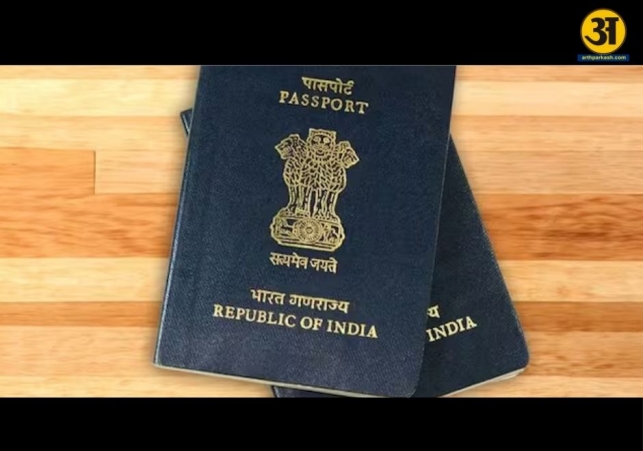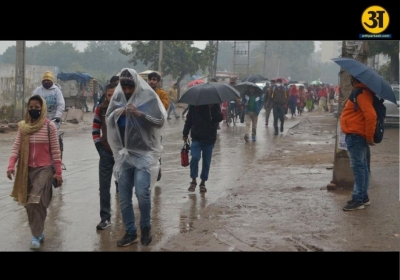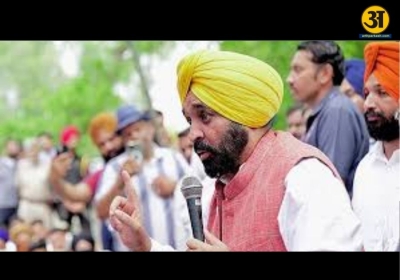
No husband’s nod needed for wife’s passport: Delhi HC
Delhi High Court rules wife doesn’t need husband’s consent for passport
- By Gurmehar --
- Sunday, 22 Jun, 2025
The Madras High Court has ruled that a married woman does not need her husband’s consent or signature to apply for a passport. The court called the requirement “shocking” and said it reflects a male-dominated mindset that sees women as property of their husbands.
Justice N Anand Venkatesh gave this ruling while hearing a petition filed by a woman named Revathy, who was being asked by the Regional Passport Office (RPO) in Chennai to get her husband’s signature on a form before they would process her passport application.
The judge strongly criticised this demand. He said it shows a wrong belief in society that once a woman is married, she becomes the husband’s property. He made it very clear that this thinking must change in a society that values equality and women’s freedom.
The case of Revathy
Revathy had applied for a passport in April 2025. However, her application was not processed by the passport office. The RPO told her she needed to get her husband’s signature on Form-J. Only after that would they look into her request for a new passport.
Revathy and her husband had a matrimonial dispute, and her husband had filed a petition in court asking for a divorce. The case is still pending. Because of this strained relationship, Revathy found it impossible to get his signature. So, she filed a petition in the Madras High Court.
The judge took a firm stand in her favour. He said that the passport office should process her application independently, without involving the husband. There is no legal requirement for a married woman to get her husband’s permission to apply for a passport, he said.
The court also pointed out that requiring a wife to get her husband's approval is nothing less than male supremacism. Justice Venkatesh said such practices go against the principles of a modern and progressive society. “This mindset treats women as if they are chattel – that is, movable property – belonging to their husbands. This is unacceptable,” he said.
She has her own identity
In his detailed order, Justice Venkatesh said a woman does not lose her identity after marriage. She remains an individual with full rights, including the right to apply for a passport.
He added that expecting a wife to get her husband’s signature is especially unfair when the couple is in conflict. In such cases, it may be impossible for the woman to reach out to her husband or get his cooperation. The judge said that the RPO was asking the woman to do something that was practically impossible, which was not acceptable.
“The practice of asking for a husband’s consent does not suit a modern society that is working towards equality and empowerment of women,” he said. Such practices, the court noted, have no place in a legal system that respects fundamental rights.
The court also said that the demand for consent should not be repeated in other similar cases. This judgment sets a strong example for passport offices and other authorities across the country to avoid such gender-biased actions.
Strict direction to RPO
The court has now directed the RPO to process Revathy’s application without delay. Once she fulfills all other regular requirements – such as submitting identity proofs and address documents – the passport must be issued in her name.
The judge said this entire process must be completed within four weeks from the date of the order. This ensures that Revathy will not have to face any more unnecessary delays or harassment.
This ruling is seen as a major step in protecting women’s rights. It clearly shows that a woman, whether married or not, has full control over her own documents, choices and legal identity.
ALSO READ: Indian deposits in Swiss banks drop by 18% over the last decade
ALSO READ: Qutub Minar illuminated in Russian Flag colours to mark Russia Day
Important message for society
This case has also brought attention to how official rules and demands often reflect outdated societal beliefs. Justice Venkatesh said that authorities must act responsibly and respect individual rights. He criticised the passport office for continuing a practice that is unfair and harmful, especially for women who are facing family troubles.
He also pointed out that such actions not only cause delays but also damage a woman’s dignity and right to live as an equal citizen. The court’s judgment sends a strong message that gender equality must be maintained in every area of government work.
The Madras High Court's order in Revathy’s case is a powerful reminder that no woman should be forced to get her husband’s permission to apply for something as basic as a passport. The court has upheld a woman’s freedom, identity, and independence. This decision may help bring about a change in how officials handle such matters in the future, making sure that no one is treated unfairly just because of their gender.





